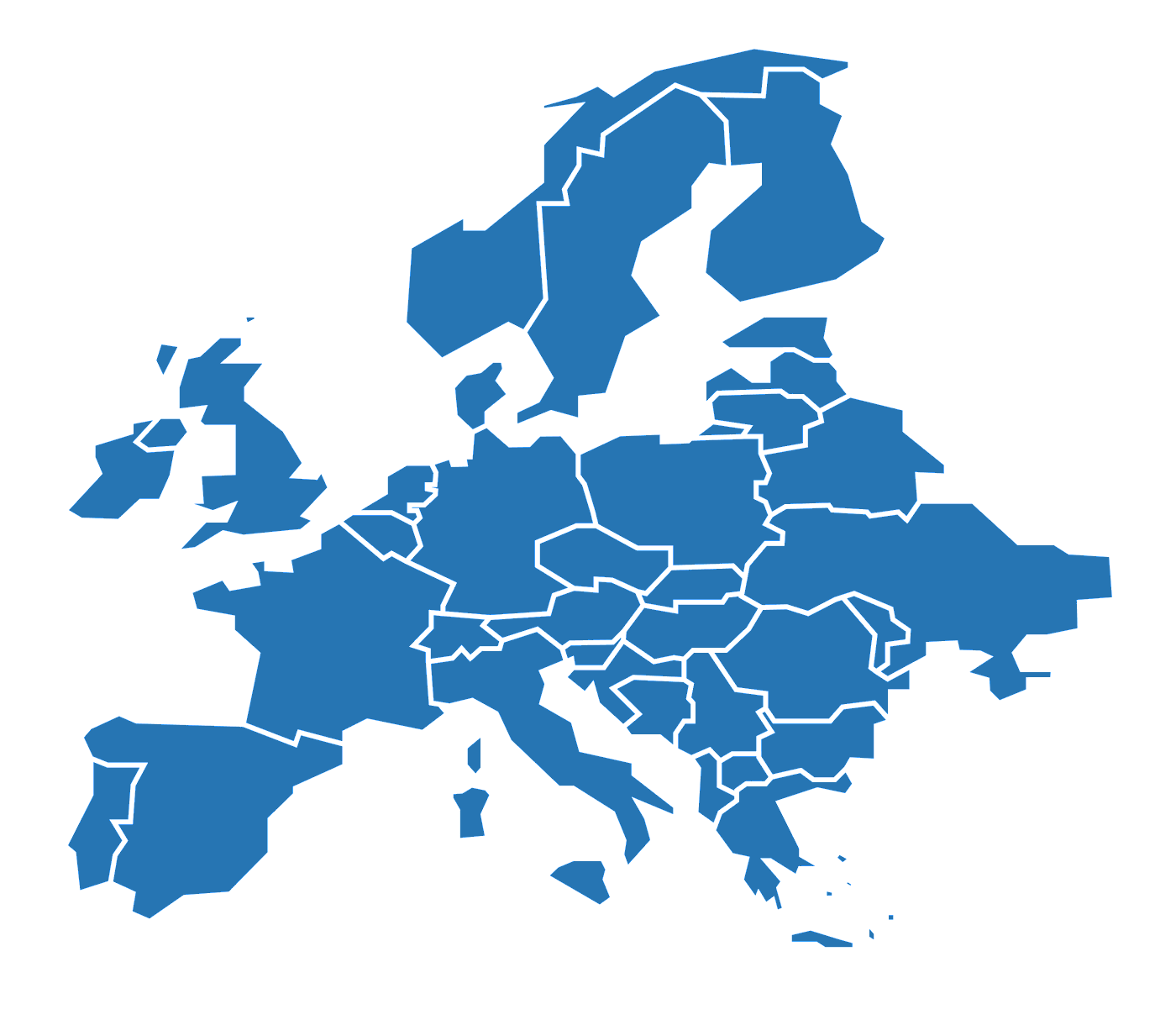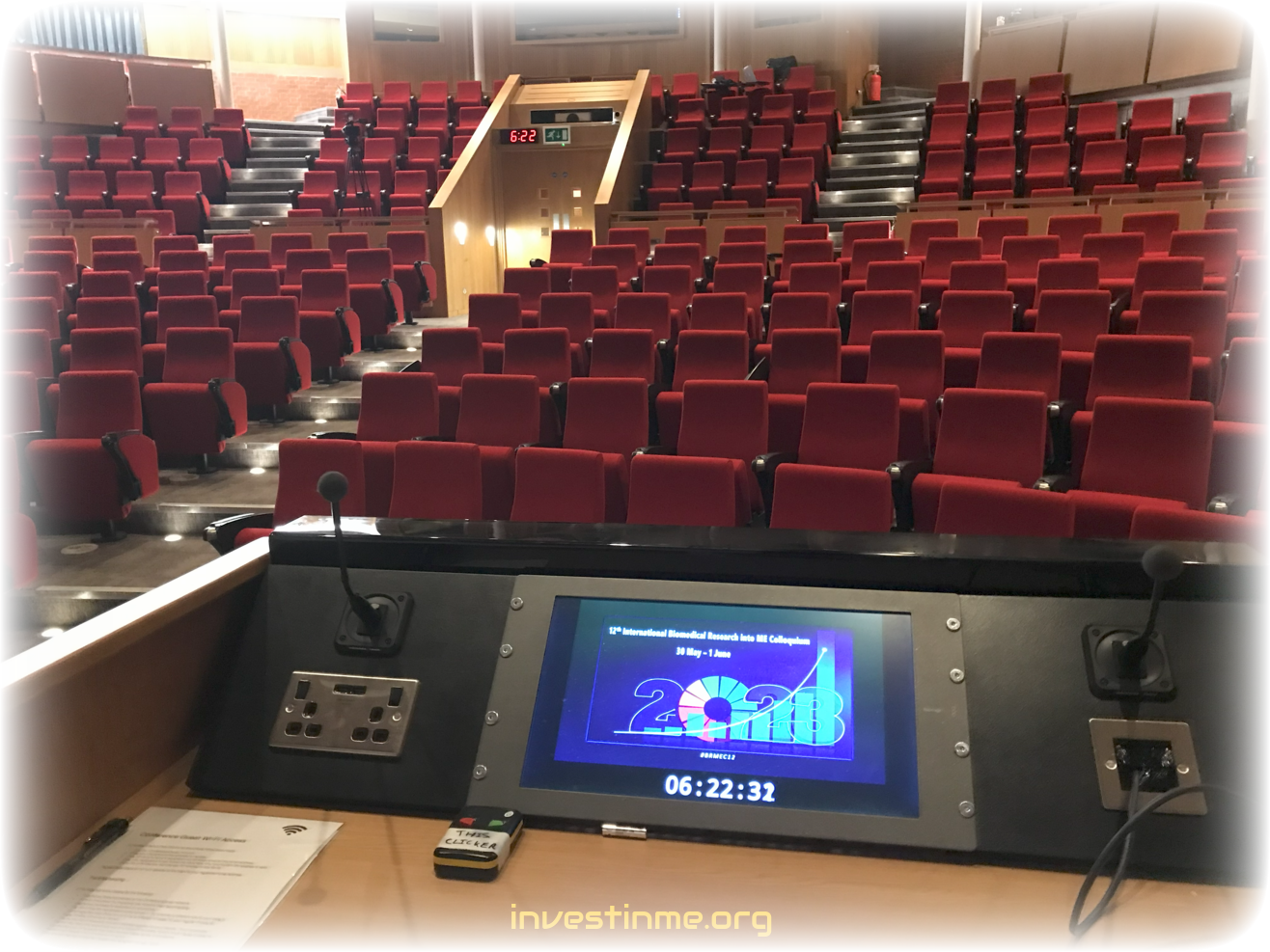


The European ME Research Group (EMERG) is a network of European researchers and researcher-clinicians focused on
myalgic encephalomyelitis (ME, sometimes referred to as ME/CFS).
Formed in 2015, the group aims to create a strategy for high-quality, coordinated biomedical research.
This strategy emphasises collaboration and the sharing of experiences and knowledge to identify key research areas.
The goal is to expand research capacity in Europe, accelerating the discovery of the cause(s) and treatment(s) for ME. The development of new research and the accumulation of shared data build a foundation of fundamental ME research in Europe.

Advancing the understanding and treatment of ME demands a comprehensive and collaborative approach. This combines scientific expertise, clinical practice, and patient advocacy to accelerate progress. Key objectives include translating scientific discoveries into clinical practice, amplifying patient voices, and building research capacity.
Collaboration between researchers and clinicians facilitates the rapid integration of new findings into patient care. Engaging with patient groups within the European ME Alliance (EMEA) helps address the priorities and needs of those living with ME. Networks such as the European ME Clinicians Council (EMECC) and Young EMERG support emerging talent and cultivate interest in ME research among early-career researchers.
Uniting these networks enables a collaborative environment that advances ME research and expedites improvements in patient outcomes. This collective effort deepens the understanding and enhances the treatment of ME.

The European ME Clinicians Council (EMECC) was established to create a network of clinicians across Europe experienced in diagnosing and treating ME. This initiative aimed to support clinicians, foster collaboration, and develop standards and knowledge in partnership with researchers. Inspired by the US Clinicians Council, EMECC was initiated by the UK charity Invest in ME Research to collaborate with EMERG and the European ME Alliance (EMEA).
The European ME Alliance (EMEA) brings together patient organisations and charities across Europe to advocate for those affected by ME. EMEA advocates for patients, campaigns for increased funding for biomedical research, and promotes the need for better services and treatments. By fostering collaboration and sharing experiences, EMEA works to raise awareness and drive progress in ME research and patient care, supported by the EMERG and EMECC.
Young EMERG was established to support early-career researchers in the field of ME. This initiative aims to foster the next generation of ME researchers by providing opportunities for collaboration, career development, and capacity building. By encouraging young scientists to engage in ME research, Young EMERG seeks to drive innovation and ensure the future of ME research in Europe, supported by the EMERG, EMECC and EMEA.
EMERG members across Europe are engaged in various activities to advance ME research and clinical practice. These activities include collaborative research projects and supporting early career researchers through Young EMERG. These efforts aim to translate scientific discoveries into clinical advancements and build research capacity to improve patient outcomes.
Current ME Research in Denmark
Jesper Mehlsen
Jesper Mehlsen's research focuses on the autonomic nervous system and complex diseases, including those potentially resulting from HPV vaccines.
He specialises in investigating autonomic dysfunction, which can lead to symptoms such as orthostatic intolerance and cognitive dysfunction, common
in ME/CFS.
In the realm of ME research, Mehlsen has been a vocal advocate for treating ME/CFS as a physical, neurological illness rather than a
psychosomatic condition. He has contributed to policy changes in Denmark, helping to separate ME from functional disorders and acknowledging
the inadequacy of current treatments.
>
His research is supported by access to clinical data and collaborations with other researchers and clinicians in the field of ME/CFS.
While specific funding details for ME research are not explicitly mentioned, his broader research is likely supported by
various grants and
institutional funding.
Rikke Olsen
Rikke Olsen's research focuses on the role of mitochondria in health and disease, particularly in the context of neurological disorders.
Her work investigates how mitochondrial dysfunction contributes to the pathophysiology of various conditions, including those that may
overlap with symptoms experienced by ME/CFS patients.
In the realm of ME research, Olsen's contributions to understanding mitochondrial function could provide valuable insights into the
energy production deficits and fatigue often reported by ME/CFS patients.
Her research is supported by various grants and institutional funding, and she collaborates with other researchers in the field of
mitochondrial biology and neuroscience.
Olsen's work on mitochondria offers a crucial perspective on the cellular mechanisms that may underlie the symptoms of ME/CFS,
potentially informing future diagnostic and therapeutic strategies.
Hatice Tankisi
Hatice Tankisi's research focuses on clinical neurophysiology, with a particular emphasis on peripheral nerve, muscle, and cortical
excitability tests.
She investigates neurological disorders, particularly ALS and polyneuropathy, using electrophysiological markers to monitor disease
progression and understand pathophysiology.
In the realm of ME research, Tankisi's work on neurophysiological biomarkers could potentially shed light on the neurological aspects
of ME/CFS, although specific ME/CFS projects are not explicitly mentioned.
Her research is supported by various grants and institutional funding, and she is a member of several international research networks,
including the European Multicenter EMG network and the International Diabetic Neuropathy Consortium.
Tankisi's contributions to neurophysiology provide valuable insights that could be relevant to understanding the neurological symptoms
experienced by ME/CFS patients.

Iceland
Tekla H. Karlsdottir is involved in research related to the physical and cognitive impact following SARS-CoV-2 infection. She has contributed to studies that compare symptoms reported after infection with medical evaluations, such as blood tests and sensory tests.
Friðbjörn Sigurðsson is associated with the establishment of the Akureyri Clinic, a specialty clinic for patients with ME/CFS and long-Covid in Iceland. The clinic aims to address the needs of patients and conduct research on ME/CFS.
Sigurveig T. Sigurdardottir is the Head of the Department of Immunology at Landspitali University Hospital in Iceland. Her research focuses on pediatrics, allergy, and clinical immunology, including studies on food allergy prevalence in Icelandic infants and the characterisation of house dust mite sensitivity in a dust mite-free community
Kristján Erlendsson is an Associate Professor of Medical Education and Associate Dean of Education at the University of Iceland Medical Faculty. His research interests include rheumatology, immunology, and complement studies. He has contributed to various publications in these fields.

Sweden
Jonas Bergquist is a prominent researcher in the field of myalgic encephalomyelitis (ME) in Sweden. He is a Professor of Analytical Chemistry and Neurochemistry at Uppsala University. His research focuses on characterising the neuroimmunological aspects of ME using proteomics and metabolomics, with a particular interest in cerebrospinal fluid studies and autoantibodies. Bergquist's work aims to understand the origins of ME and develop potential treatments for this debilitating illness.
Per Julin's recent research on ME included a study published in 2021 that investigated regional cerebral blood flow (rCBF) in ME/CFS patients. The study, titled "Limbic Perfusion Is Reduced in Patients with Myalgic Encephalomyelitis/Chronic Fatigue Syndrome (ME/CFS)," used the pseudo-continuous arterial spin labeling (PCASL) technique on a whole-body clinical 3T MRI scanner. The findings revealed significant hypoperfusion in several brain regions of the limbic system in ME/CFS patients compared to healthy controls. This research highlights brain blood flow abnormalities that may contribute to ME/CFS pathogenesis In 2023, he contributed to a study published in Oxford Open Immunology that focused on achieving symptom relief in ME patients by targeting the neuro-immune interface and optimizing disease tolerance. This research aimed to understand the pathogenesis of ME and develop strategies to alleviate symptoms by modulating the immune system's interaction with the nervous system. The study involved a cohort of ME patients and used advanced molecular techniques to identify potential therapeutic targets5
Anders Rosén recently published a paper on Prevalence of EBV, HHV6, HCMV, HAdV, SARS-CoV-2, and Autoantibodies to Type I Interferon in Sputum from ME Patients.
UK
Simon Carding's recent research focuses on the role of the intestinal virome in myalgic encephalomyelitis (ME). He has been involved in studies investigating alterations in the intestinal virome and its potential contributions to ME, exploring how gut viruses may influence the development of the condition. His work emphasizes the importance of understanding the gut microbiota and virome in the context of ME, aiming to identify potential biomarkers and therapeutic targets
Davis Price is known for his innovative research in the field of ME. He has been involved in developing cutting-edge technologies and methodologies to better understand the pathophysiology of ME. His work includes the use of nanofabrication and advanced molecular techniques to study the genetic and immunological aspects of the disease, aiming to identify biomarkers and potential therapeutic interventions
Caroline Dalton's research focuses on the metabolic and immune dysfunctions associated with ME. She has conducted studies that replicate findings related to micro-blood clots in ME patients, which restrict blood flow and contribute to the symptoms of the condition. Her work involves using advanced imaging techniques to count the number of clots in blood, providing insights into the mechanistic links between these clots and ME

Netherlands
n May 2023, Dr. Jos Bosch, Associate Professor at the University of Amsterdam and researcher at Amsterdam UMC, commenced the Dutch ME/CFS Cohort- and Biobank (NMCB) Consortium. This eight-year project, funded with €7.2 million from ZonMw, aims to establish a national infrastructure for biomedical research into ME. The consortium focuses on understanding disease mechanisms, improving diagnostics, and exploring potential treatments. It involves collaboration among all Dutch university medical centres and includes home visits to severely affected patients to ensure comprehensive data collection.

Germany

Spain

Norway
Marte K. Viken: Leading the HLA and Disease project group at Oslo University Hospital, Viken's team focuses on immunogenetic studies related to ME. Their research includes identifying pathogenic cell phenotypes in ME patients and examining gene expression of HLA genes.
Kristian Sommerfelt: Affiliated with the University of Bergen, Sommerfelt co-authored a study published in February 2023 titled "Severe and Very Severe Myalgic Encephalopathy/Chronic Fatigue Syndrome ME/CFS in Norway: Symptom Burden and Access to Care." This research highlighted the extensive symptom burden and inadequate healthcare support experienced by severely affected ME patients in Norwa. Building on this work, in June 2024, Professor Sommerfelt collaborated with colleagues to publish "Assessing Functional Capacity in Myalgic Encephalopathy/Chronic Fatigue Syndrome: A Patient-Informed Questionnaire." This study introduced the Functional Capacity (FUNCAP) questionnaire, developed with extensive patient feedback to accurately assess functional capacity in ME patients.
Ola Didrik Saugstad: A professor at the University of Oslo, played a pivotal role in establishing a specialised care service for severely ill ME patients at Røysumtunet, located near Oslo. Recognising the substantial need for institutional care among this patient group, Professor Saugstad was instrumental in identifying a suitable facility to accommodate them. He noted that many of these patients had been confined to their homes for extended periods, often relying solely on family members for care, and in some instances, had minimal contact with healthcare services.

Serbia

Finland

Upcoming and recent events involving EMERG, Young EMERG and EMEA.
These included workshops and conferences.
The expertise of EMERG members means that the group can be a powerful influence when research expertise
is required at conferences and educational events.